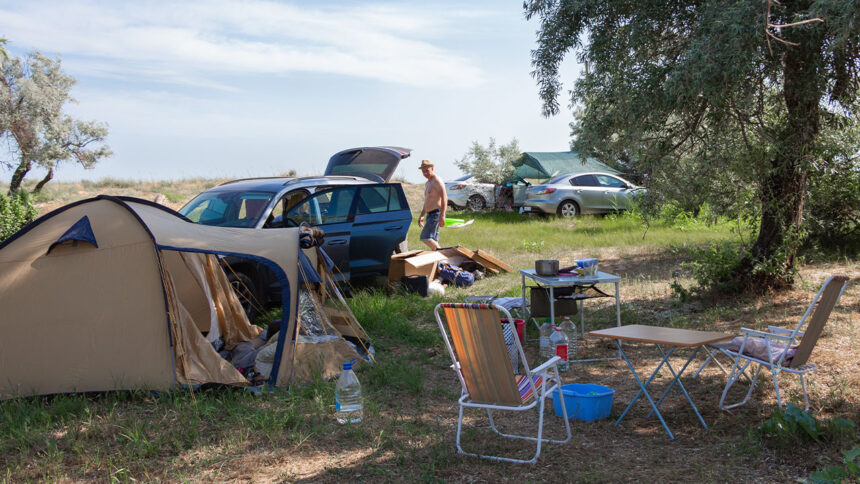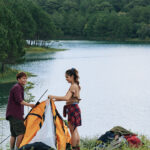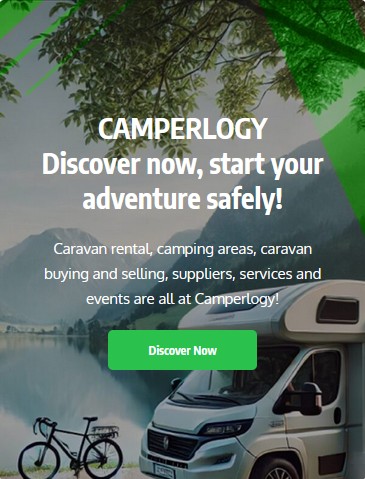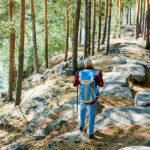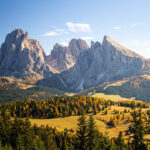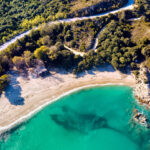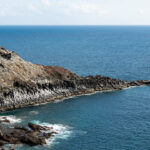Camping is a great way to explore the great outdoors, connect with nature and escape the hustle and bustle of everyday life. However, choosing the right campsite is crucial to ensure you have a comfortable and enjoyable experience. Whether you are an experienced camper or a first-timer, understanding the factors to consider when choosing a campsite can help you make the best choice for your trip. We’ll look at the key things to consider when choosing a campsite, from location and amenities to accessibility and environmental factors. Let’s get started!
Priority Location, Location, Location at the Campsite
The first and most obvious factor when choosing a campsite is its location. Location sets the tone for your entire camping experience and determines the types of activities you can enjoy.
Proximity to Attractions
If you are camping in a national park, near a lake or in the mountains, see what attractions or activities are available in the area. Do you want to be close to hiking trails, fishing spots or scenic viewpoints? Knowing the local attractions will greatly help you choose a location that suits your interests.
For nature lovers: If you like hiking, look for campsites near trails or scenic areas.
For water sports enthusiasts: If you plan to canoe, swim or fish, choose a location near a lake or river.
For wildlife enthusiasts: Some campsites are located near areas known for birdwatching or observing animals in their natural habitat. You can research these campsites.
A Solitary Camp for Retreats or a Social Camp?
Do you prefer solitude or do you enjoy the social atmosphere of a bustling campsite? Some campsites are remote and provide peace and quiet, while others are closer to popular tourist attractions and are busier and more crowded. Think about what kind of environment you want during your camping trip. If you are looking for peace and quiet, choose a more secluded location away from the crowds. On the other hand, if you want to meet other campers, a lively campsite might be the right choice.
Accessibility and Transportation
How you get to your campsite is another important consideration. Accessibility can significantly impact your camping experience, especially if you are camping with your family, pets or have limited mobility.
Road Conditions and Parking
For car campers, it is important to check the road conditions leading to the campsite. Is the road paved or will you need a four-wheel drive vehicle? Is there parking near the campsite or will you need to carry your equipment over a distance? Consider how easy it will be to reach the site with your camping equipment, especially if you have heavy or bulky equipment.
Public Transportation and Shuttle Services
If you rely on public transportation, look for campsites near bus or train stations or check if there is a shuttle service. This can be especially important for those who do not drive or want to avoid long car journeys to the campsite.
Proximity to Towns or Services
If you plan to buy supplies, visit local restaurants or seek medical attention, you may want to choose a location close to a town or village. It is important to balance the convenience of being close to amenities with the desire to be immersed in nature.
Campsite Facilities
Not all campsites are equal when it comes to facilities. Some offer full-service facilities with showers, electricity and Wi-Fi, while others provide more basic, back-to-nature experiences. When choosing your campsite, think about the level of comfort you need.
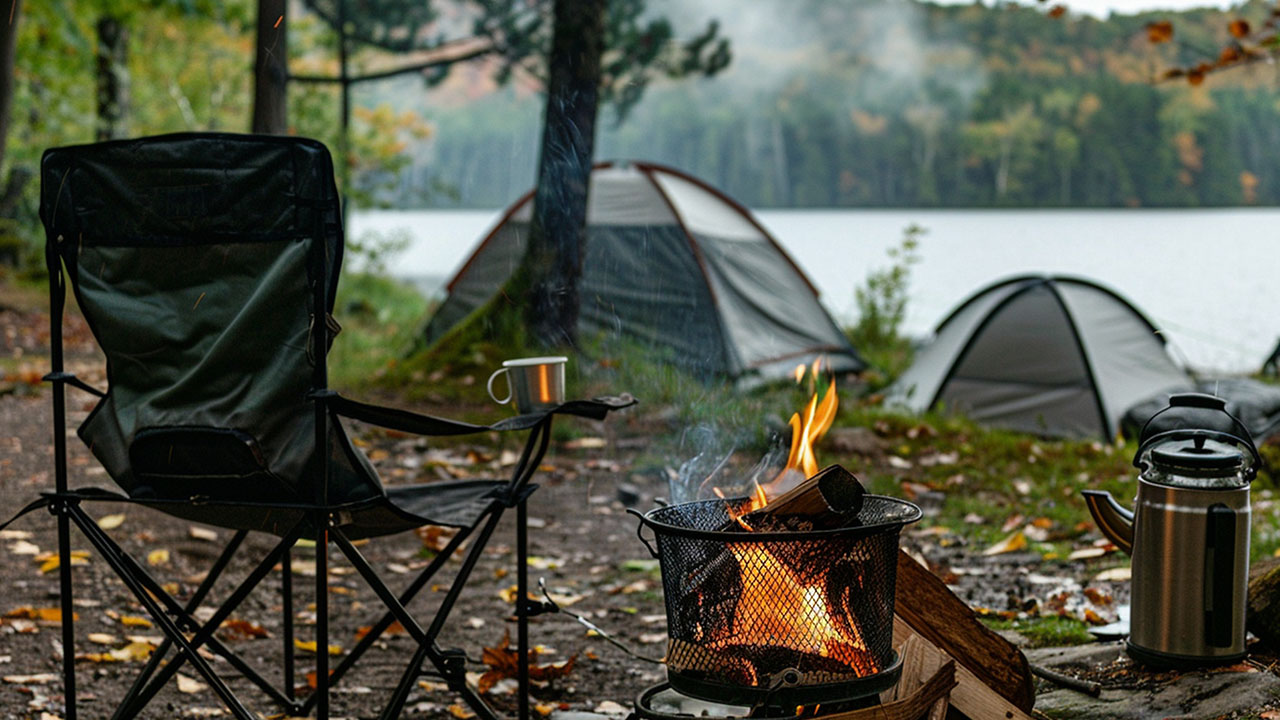
Basic Facilities
Toilets and showers: If you prefer a bit of luxury, look for campsites with clean toilets and showers. Some campsites may have flush toilets, while others may have composting or pit toilets.
Water Sources: Make sure there is potable water at the campsite or if you need to bring your own water. Some areas have lakes or rivers nearby, but without proper treatment they may not be suitable for drinking. Power Supplies: If you are tent camping, you may need to bring a portable power bank to charge your devices. However, when camping in a caravan or campervan, make sure that electrical connections are available for your convenience.
Internet and Connectivity Service: Depending on your preference, you may want to know if the campsite offers Wi-Fi or cellular networking. For some, disconnecting from technology is part of the camping experience, while others may want to stay connected.
Entertainment Facilities
Check if the campsite offers recreational facilities such as playgrounds, picnic areas, barbecue grills or sports equipment rental. These can be useful for families or groups who want to enjoy activities during the day.
Weather and Seasonal Conditions
The weather conditions and seasonality of your campsite are also important factors. Before booking a campsite, research the climate in the area to make sure it matches your preferences.
Seasonal Suitability
Some campsites may be open year-round, while others may only be open during the summer or fall months. Always check in advance to make sure the campground is open when you plan to visit. Some parks may also have peak seasons when they are particularly crowded, while off-season visits can offer a quieter and more peaceful experience.
Temperature and Weather Considerations
Be aware of the typical temperature range and weather conditions in the area where you plan to camp. If you are camping in the mountains, it can be much colder at night, even in summer. If you are camping in a coastal area, be prepared for wind or rain. Check weather forecasts to pack appropriate clothing and equipment for various conditions.
Safety and Security
Your safety and the safety of your belongings should be the top priority when choosing a campsite.
Crime and Wildlife Hazards
Research the area to understand possible risks, such as wildlife encounters or local crime rates. If the area is known for bear activity, you should store your food in bear-proof containers. Make sure you know how to protect yourself from dangerous animals in the area. In addition, some places may require specific safety measures or gear depending on the terrain and climate.
Emergency Services and Medical Assistance
Check if the campsite is close to any emergency services, such as a hospital or ranger station. It is especially important to have access to medical assistance if you are hiking, kayaking or participating in other outdoor activities that carry higher risks.
Environmental Considerations
When choosing a campsite, it is important to choose an environmentally responsible location. It is important to follow general camping principles to minimize your impact on nature and preserve it for future generations.
Environmental Impact
Avoid camping in areas that are very sensitive to human presence. Some locations may be protected wildlife areas or sensitive ecosystems, and camping there can cause long-term damage. Choose established campsites designed to handle human traffic.
Respect for Nature
Pay attention to the natural environment. Stick to marked trails, avoid disturbing wildlife and never leave litter. If a campsite has rules regarding fire safety or waste disposal, make sure you follow them to protect the surrounding ecosystem.
Choosing the right campsite can enhance your overall camping experience, turning it into an adventure full of enjoyment, relaxation and unforgettable memories. By considering factors such as location, accessibility, amenities, weather conditions, safety and environmental impact, you can ensure your camping trip is a success. Whether you’re looking for a remote wilderness retreat or a family-friendly campsite with plenty of amenities, there’s a perfect campsite waiting for you. So pack your gear, choose wisely and get ready to enjoy the great outdoors!
For an extra touch of adventure, consider visiting your chosen destination in an RV, adding an element of flexibility and comfort to your camping trip.
Check out all Camperlogy blogs! Discover great journeys!


